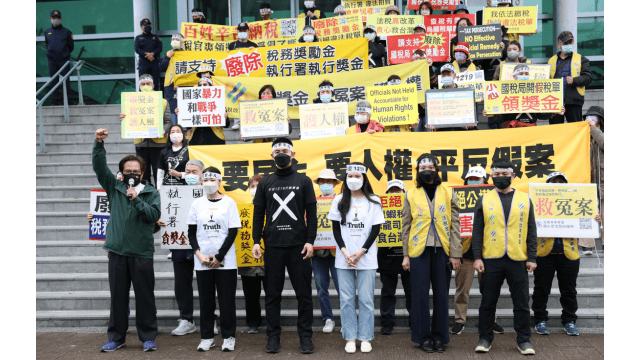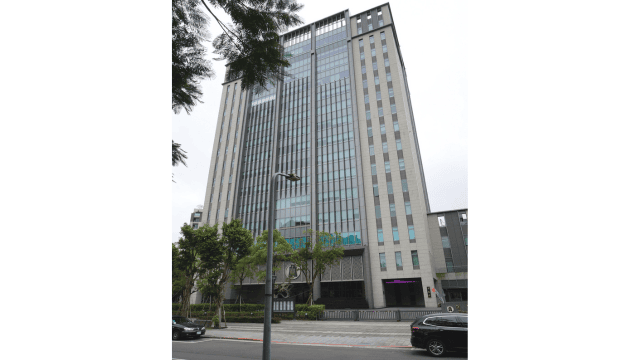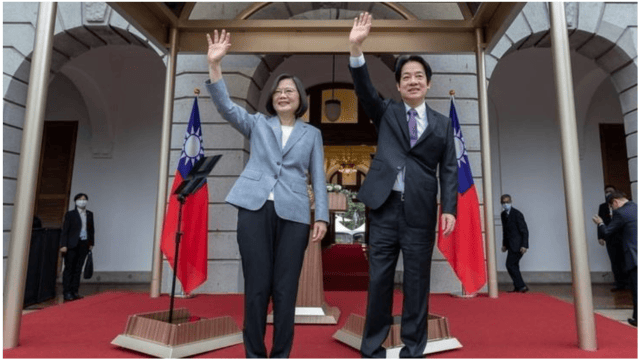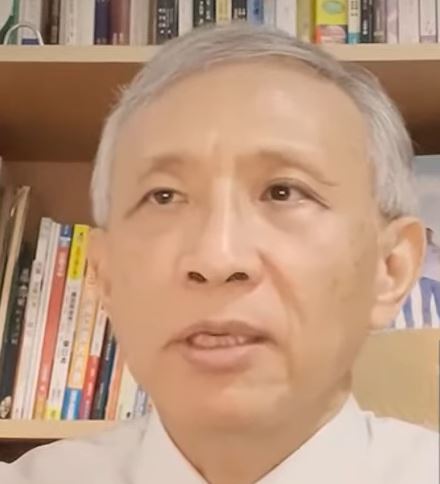Transitional justice and freedom of religion or belief (FoRB) are connected. Without effective transitional justice, FoRB in Taiwan will remain incomplete.
by Tsai Cheng-An
Article 7 of 7.
Read article 1, article 2, article 3, article 4, article 5, and article 6.

Transitional justice emphasizes the concept of facing up to historical mistakes and pursuing the realization of social justice. It is the responsibility of leaders of successive regimes to correct the mistakes made by the old regimes in the past and rectify the historical injustices. This is an obligation and responsibility that a democratic society should not avoid. Transitional justice must transcend the limitations of the past legal framework and use appropriate means to solve the problems left over by the old regime. Otherwise, historical injustice will not be righted, and the society will not be able to complete a successful transformation.
The Office of the United Nations High Commissioner for Human Rights (OHCHR) offers a full program of transitional justice. Based on its criteria, Taiwan’s government should also confront the human rights cases of persecution of religious beliefs initiated by the KMT government in 1996, during Taiwan’s post-authoritarian period. These cases are typical of the illegal and unjust acts perpetrated under the KMT government, although they occurred after 1992.
In particular, the Tai Ji Men case is a typical example of human rights violations by the post-authoritarian regime during Taiwan’s slow transition to a democratic regime. It also shows that the tax system at work from 1992 to 2020 was still not a modern system respecting the principles of separation of powers and checks and balances for the purpose of protecting human rights. It still maintained residual effects of the authoritarian period, which continued to harm basic human rights and hinder social progress. The Tai Ji Men case also highlights that in Taiwan’s post-authoritarian regime, administrative courts do not fully protect human rights and continue to serve as a tool to shield the mistakes of the administrative power.

The evidence is as follows:
(1) More than 9,500 explanatory letters and orders of the Ministry of Finance govern the tax administration. The explanatory letters and orders go beyond the law and make the executive power hegemonic over the legislative power, which seriously violates the principle of legal control of the tax system. The Legislative Yuan has no room to comment on the explanatory letters and orders.
(2) The administrative courts do not understand the intricacies of the tax law, which means that they rely on the National Taxation Bureau (NTB) reports, with the result that more than 94% of tax cases are decided against the taxpayers, who have no effective remedy against unjust taxation.
(3) The Ministry of Finance and its subordinate tax authorities, in addition to quoting laws and decrees, also use letters of explanation to offer frequent interpretations that are unfavorable to the citizens’ rights and interests, and favorable to the NTB.
(4) The Legislative Yuan itself cooperated with the administrative organs to give tax officials bonuses and promotion incentives, with the result that imposing excessive taxes has invisibly become the collective subconscious of tax collectors, and the original sin leading to violation of human rights.
(5) If the citizens refuse to accept the administrative decisions of the tax collectors, they have to pay half of the tax to avoid enforcement before they could act for administrative relief, which discourages action.
(6) Tax bureaucrats are afraid of admitting their mistakes, and for this reason would never give up or admit defeat in a tax lawsuit. Nonetheless, in the infrequent event they lose a court case, they are not punished for their past mistakes.
President Tsai deserves credit for the judicial reform she promoted after her second election in 2016. However, her reform was focused on criminal law and did not extend to the authoritarian administration of tax law, which also violates human rights to a great extent.

As we have seen, Taiwan has incorporated two international conventions into domestic law in 2009. The two conventions require that effective remedies to protect human rights and rectify past injustices should be implemented. The judiciary may apply several different methods to effectively ensure the enjoyment of the rights recognized by the conventions, including direct application of the conventions, invocation of constitutional or other legal provisions including similar concepts, or interpretation from the perspective of human rights under the conventions when applying domestic law. An independent and impartial administrative body, such as the Commission on Human Rights, could also be entrusted to investigate cases of human rights violations promptly, thoroughly, and effectively so as to prevent the recurrence of such violations.
However, although Taiwan has become a democratic country under the rule of law, as of 2021 it has not yet fully dealt with the problem of transitional justice with respect to the past legal and tax authoritarian system. The current remedy system is still limited to the old framework, and there is no effective relief channel for the illegal administrative punishments after the decisions of the administrative courts. As a result, the way of redress for well-known and obvious miscarriages of justice is still blocked, obviously violating the obligations of the state stipulated in the two conventions.
The government must face up to the various cases of human rights violations caused by the post-authoritarian regime after 1992. Taiwan should apply effective transitional justice to acts of tax authorities as well, transcend the limitations of the existing administrative procedural law and tax law, conform to the international conventions, ask the TJC to investigate all kinds of cases, cancel unjust court decisions that violated human rights, rectify all false cases, and realize the essence of transitional justice, “rehabilitate the reputations.” This is the real transitional justice that will make Taiwan a country of real democracy, rule of law, and human rights.

Tsai Cheng-An received his Ph.D. in Technology Management from National Chengchi University and his MS in Industrial Engineering from National Tsinghua University in Taiwan. He teaches innovation management, business model analysis, and new business development strategies at Shih Chien University, Taipei, Taiwan. Prior to his academic career, he had 18 years of practical experience in the industry, and his research interests are in decision making, business model innovation, and corporate entrepreneurship, as well as in the area of transitional justice and freedom of religion or belief. He has published in the International Journal of Entrepreneurial Behaviors & Research (SSCI), Technology Analysis and Strategic Management (SSCI), Logistics (SCIE), Management Review (TSSCI), Journal of Management (TSSCI), Sun Yat-sen Management Review (TSSCI), Journal of Science and Technology Management (TSSCI) and Forum for Industry and Management (TSSCI).



